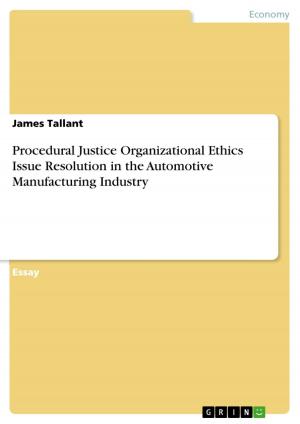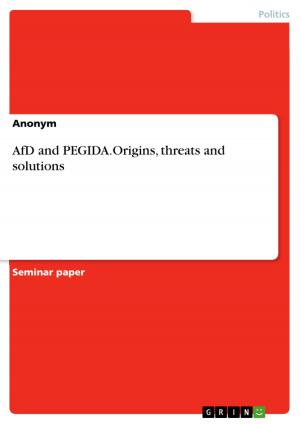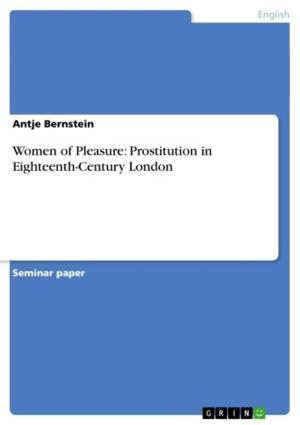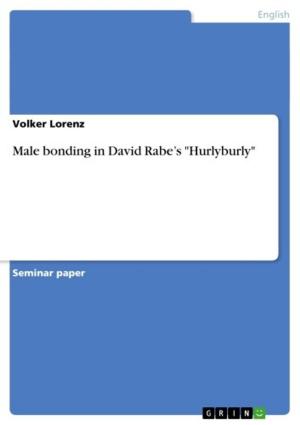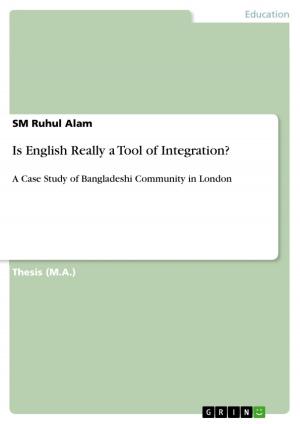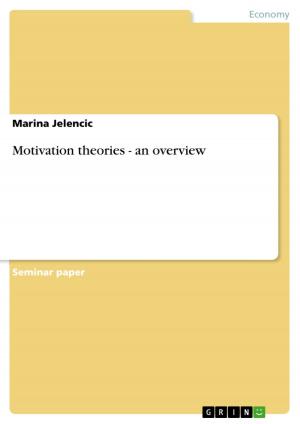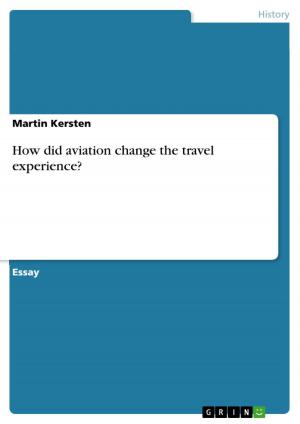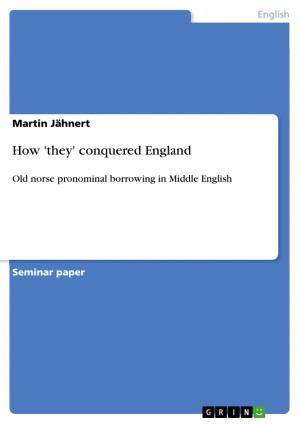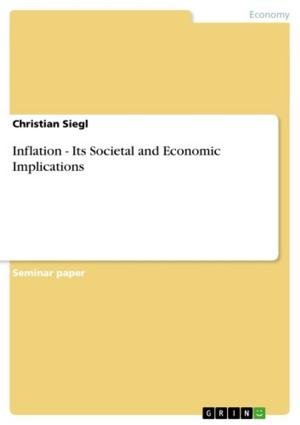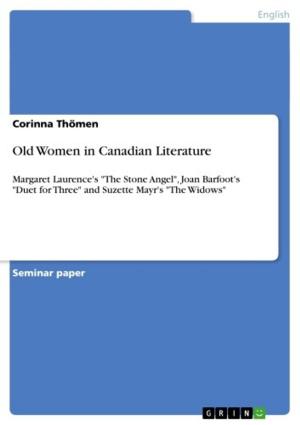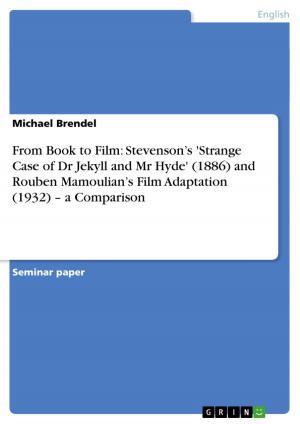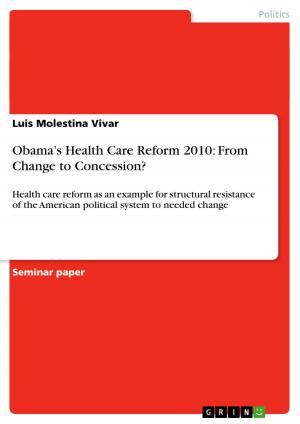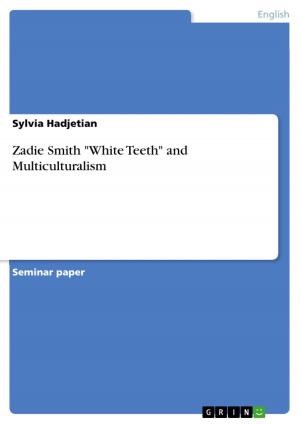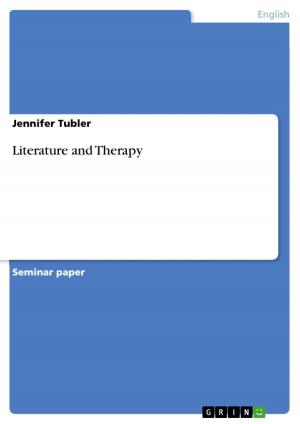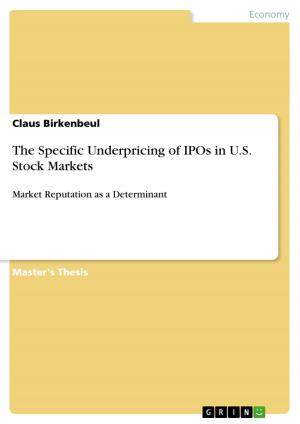Religious aspects in Emily Dickinson's 'Nature Poems'
Fiction & Literature, Literary Theory & Criticism, British| Author: | Tim Jakobi | ISBN: | 9783638012515 |
| Publisher: | GRIN Publishing | Publication: | February 27, 2008 |
| Imprint: | GRIN Publishing | Language: | English |
| Author: | Tim Jakobi |
| ISBN: | 9783638012515 |
| Publisher: | GRIN Publishing |
| Publication: | February 27, 2008 |
| Imprint: | GRIN Publishing |
| Language: | English |
Seminar paper from the year 2004 in the subject English Language and Literature Studies - Literature, grade: 1,0, University of Dusseldorf 'Heinrich Heine' (Anglistisches Institut II - Abteilung für Amerika-Studien), course: American Nature Poetry: From The Puritans To The Present, 7 entries in the bibliography, language: English, abstract: Table of Content: 1.Introduction 2.Religious Background to Dickinson's Poetry 3.Nature and Religion in Emily Dickinson's Poems 3.1. A Mystical View - The Divine in Nature 3.2. Turning Around - A Sacramental View on Nature 3.3. Towards a Pessimistic View on Nature 4.Concluding Remarks 5.References 1. Introduction: Emily Dickinson is without doubt one of America's most interesting and fascinating authors, especially with regard to her quite extravagant vita, living secluded from the public for the majority of her life and not even leaving her house. Confining herself exclusively to poetry, she has created poems of marvellous emotional impact and this especially holds true for her poetry dealing with nature. As there is hardly any poem on nature by her that does not have allusions to or is combined with religious themes, it makes this branch of her work even more interesting to deal with. But to be able to grasp all the allusions Dickinson has made to religion in various ways, her Calvinist-based church and the like, it is necessary to have an insight into her religious life, which is why a brief outline of her religious vita stands at the beginning of this paper. There are many writings which deal with Dickinson's faith and the religious topics in her work - among them those used as references in this paper like the works by Doyle, Klein and Knapp, for instance. Jane Donahue Eberwein, a well-respected Dickinson specialist, puts a lot of emphasis on Dickinson's poetry with regard to the poet's Calvinist heritage in her writings, all of which are worth reading. One can find references to religion in more than only Dickinson's nature poems, for example her poems on the life of Christ, but I will exclusively deal with her poems on nature, primarily focusing on 'her quest for knowledge of the divine' , as Grimes puts it, and how this is reflected in her poetry. A few poems shall be exemplary for this and will be commented on. However, each of them will not be analyzed in too much detail. First and foremost, the main goal is to give an overview on how Dickinson refers to the deity through her poetry and how this view on the divine and (parallely) on nature changes over the course of her life.
Seminar paper from the year 2004 in the subject English Language and Literature Studies - Literature, grade: 1,0, University of Dusseldorf 'Heinrich Heine' (Anglistisches Institut II - Abteilung für Amerika-Studien), course: American Nature Poetry: From The Puritans To The Present, 7 entries in the bibliography, language: English, abstract: Table of Content: 1.Introduction 2.Religious Background to Dickinson's Poetry 3.Nature and Religion in Emily Dickinson's Poems 3.1. A Mystical View - The Divine in Nature 3.2. Turning Around - A Sacramental View on Nature 3.3. Towards a Pessimistic View on Nature 4.Concluding Remarks 5.References 1. Introduction: Emily Dickinson is without doubt one of America's most interesting and fascinating authors, especially with regard to her quite extravagant vita, living secluded from the public for the majority of her life and not even leaving her house. Confining herself exclusively to poetry, she has created poems of marvellous emotional impact and this especially holds true for her poetry dealing with nature. As there is hardly any poem on nature by her that does not have allusions to or is combined with religious themes, it makes this branch of her work even more interesting to deal with. But to be able to grasp all the allusions Dickinson has made to religion in various ways, her Calvinist-based church and the like, it is necessary to have an insight into her religious life, which is why a brief outline of her religious vita stands at the beginning of this paper. There are many writings which deal with Dickinson's faith and the religious topics in her work - among them those used as references in this paper like the works by Doyle, Klein and Knapp, for instance. Jane Donahue Eberwein, a well-respected Dickinson specialist, puts a lot of emphasis on Dickinson's poetry with regard to the poet's Calvinist heritage in her writings, all of which are worth reading. One can find references to religion in more than only Dickinson's nature poems, for example her poems on the life of Christ, but I will exclusively deal with her poems on nature, primarily focusing on 'her quest for knowledge of the divine' , as Grimes puts it, and how this is reflected in her poetry. A few poems shall be exemplary for this and will be commented on. However, each of them will not be analyzed in too much detail. First and foremost, the main goal is to give an overview on how Dickinson refers to the deity through her poetry and how this view on the divine and (parallely) on nature changes over the course of her life.

